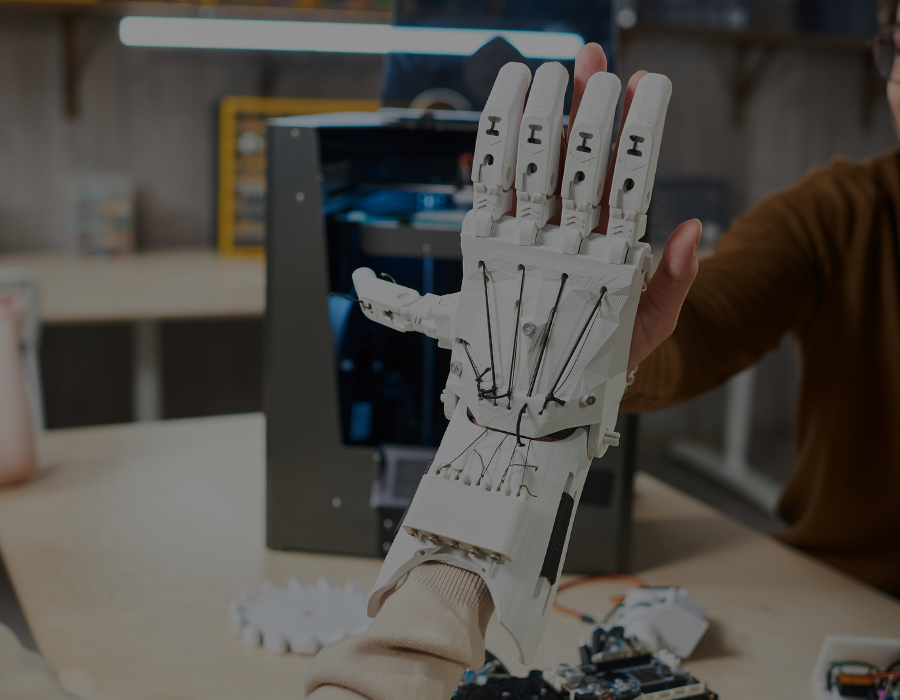Productivity has been lacklustre in the UK over recent decades, with limited growth stalled further by the global financial crisis of 2008-9 and the impact of the coronavirus pandemic.
Dame Diane Coyle, Bennett Professor of Public Policy at the University of Cambridge and Co-Director of the Bennett Institute, heads research under the themes of progress and productivity. In this post, she explains how AI can boost productivity and the UK economy, if its benefits can be easily accessed and harnessed by the majority of businesses.
How can we harness generative AI to boost productivity?
In order for any technology to make a positive impact societally and economically, it has to be widely available and relatively easy to use. Only then will it be harnessed to provide desirable and valuable goods and services. The trouble with generative AI and also less advanced digital tools is that there is a lot of evidence that companies find them hard to use to improve productivity, which in turn would benefit employees.
For example, there is clear evidence that only the top five or 10% of firms in countries including the UK have been able to use AI tools to boost their productivity and their profits, as well as the wages of their employees.
What is the productivity puzzle and can AI help fix it?
The UK has a longstanding productivity challenge. Even before the financial crisis of 2008-09 labour productivity was on average 13% higher in the rest of the G7 countries compared to the UK. Some experts think that this productivity gap has since been exacerbated by other factors, but exactly why the ‘Productivity Puzzle’ persists is a mystery.
At the Bennett Institute we are asking why transformative technology is not making our lives better and whether AI can help fix the productivity puzzle, rather than being the source of it; after all, you would expect a powerful new technology to bring economic benefits Whether AI can help fix the problem is unclear, but it will partly depend upon businesses and employees having the capabilities and skills to use it and reap its potential productivity rewards. It also requires a change in the way decisions are made at a corporate level and in the public sector, to take advantage of its capabilities, but this is something which organisations find difficult to do.
Could AI replace humans at work, or will it have a positive effect?
The evidence is that companies that are adopting AI and advanced robotics are currently expanding employment and paying their people better, which is good news. Ultimately, AI will affect people’s jobs, just as previous technological breakthroughs have done. Only time will tell whether it will make some work tasks or roles obsolete, or whether it will change the nature of people’s work, just as technological innovations always have in the past.
Overall, I’m optimistic about AI’s eventual impact on employment. The question in my mind is who will get the benefit from it? It could be the case that AI creates profits for the very rich or a few companies, or the benefits could be more widely shared. The challenge for policymakers is how best to set up structures to ensure there are widespread societal benefits.
How can concentration of power be prevented to make generative AI a powerful tool that is widely accessible to everyone?
Competition will have to play an important role. Lots of people will build on the big generative models to develop new kinds of new products and services, but there is the matter of the big models themselves. When I was in Silicon Valley recently, I heard about plans to keep scaling these models up, but there is currently no clear approach to making sure that this doesn’t just embed the market power of some already very big companies. Fundamentally, I think this matter is a political decision and whether governments remain comfortable letting incredibly powerful entities determine so much of their citizens’ lives. Governments and competition authorities across the world are taking a tougher stance toward big tech companies than they did in the past.
What do we need to do to make sure that AI serves society?
We need a mixture of approaches to ensure that AI benefits society. There are some policy approaches like interoperability that would help make the market more competitive. Another key is ensuring that powerful multinationals pay their taxes. I think diversity in the workforce in AI is critical, because if you’ve got a workforce that is very homogeneous, they’re going to think of the same kinds of problems that need tackling. Different kinds of people will see different kinds of problems and ways that AI that could benefit society.
What role can Cambridge play in shaping the future of AI technologies?
We have a great opportunity to link technical questions to societal ones thanks to the university’s interdisciplinary environment. ai@cam brings together people from across different fields, so we have a real opportunity to pinpoint and address the most pressing issues connected with AI and help drive positive, societal change based on excellent technical and other research.
1 November 2023
This post is a write up of an interview with Dame Diane Coyle, Bennett Professor of Public Policy at the University of Cambridge and Co-Director of the Bennett Institute







